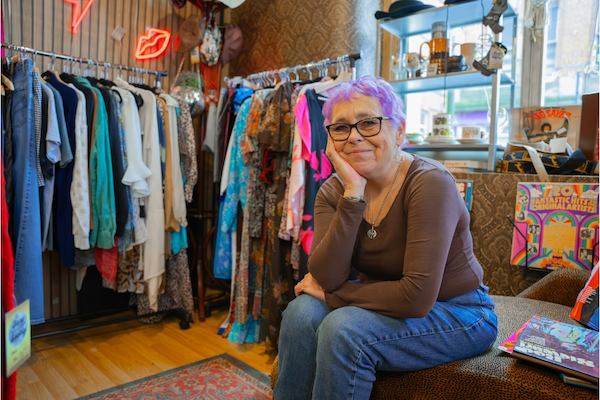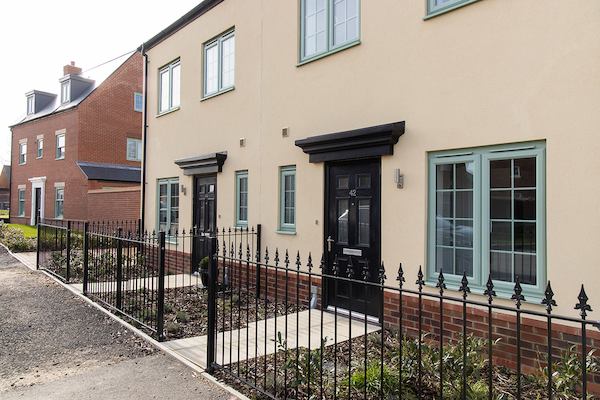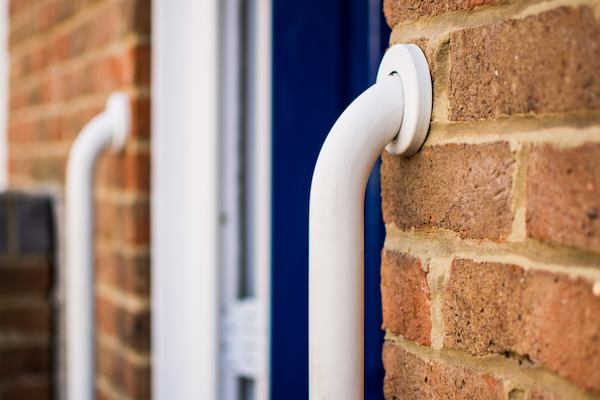Why Ian is #AgeingWithPride
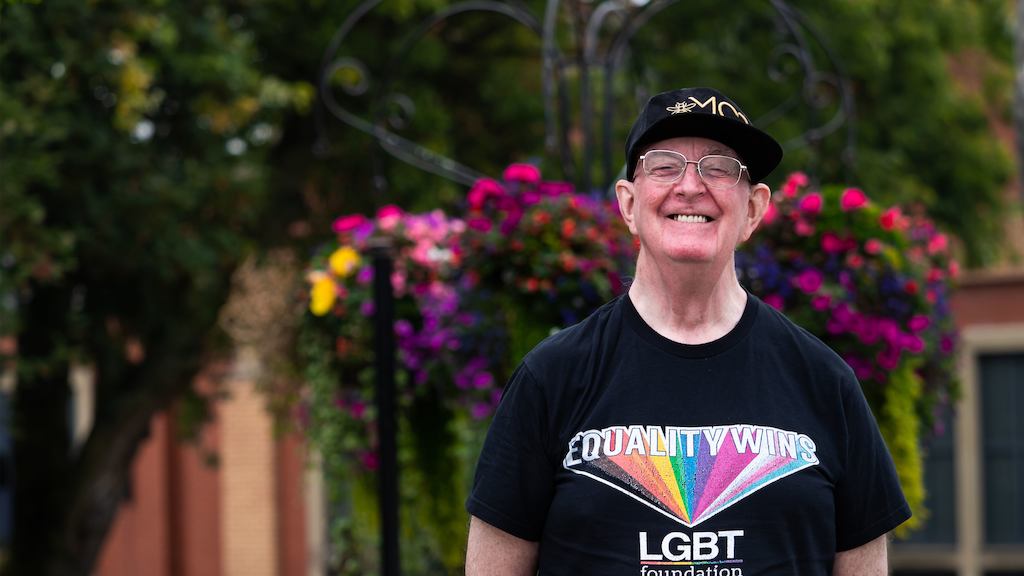
“My favourite part about helping with the LGBT archive is looking back on the timeline, seeing how we’ve built up more equality than we had.”
I’m 73 and retired, but I do quite a bit of voluntary work. I volunteer for the LGBT Foundation on various projects, I also represent them for the Wigan Pride committee and I’m a Samaritan for the Wigan branch. So, I've got a full life.
I started volunteering for the LGBT foundation seven years ago. I’m a ‘Rainbow Brew Buddy’ with the Foundation. It’s a support project which has been set up in the last twelve months. We pick up calls for LGBT+ people who are feeling down or lonely, and each person who calls can have up to eight sessions. It’s very satisfying to help them, it’s nice to have half an hour chat. Lots of LGBT+ people have been incredibly isolated during the pandemic, and some have had to go back into the closet. Mental health issues, and isolation have unfortunately affected many people. Hopefully now that things are opening up more that will help with making people feel less isolated.
I’m also the community lead on the Wigan Pride Committee. I represent the LGBT foundation for Wigan Pride, doing anything that we can do to help. Wigan pride itself was set up six years ago. At the pride events we don’t just get the LGBT+ community but right across the community in the Wigan area and beyond as well. It’s a much smaller event than say Manchester pride, but that’s the beauty of it, it’s very much a community involved event.
The thing is, as an older LGBT person, people look to us for our experiences. But it was only 1999 when I first came out, when I was 51, so in the scale of things it’s pretty recent.
As part of the Foundation’s ‘Pride in Ageing’ group, we have monthly Zoom meetings, though hopefully we are leading up to having social events. The programme was launched by Sir Ian McKellen to make sure that the voices of LGBT+ people over the age of 50 are heard. Two years ago we met Sir Ian, he’s a great guy. The thing is, as an older LGBT person, people look to us for our experiences. But it was only 1999 when I first came out, when I was 51, so in the scale of things it’s pretty recent.
I’m part of the LGBT Archive team, which is based in Manchester Central Library. I help with cataloguing various collections. The historical materials are divided into sections, such as an HIV/AIDS collection, trans collections and a publications collection including magazines like Gay Times and Pink Paper. There are some photographs, but not a vast quantity. There’s a good range of material, but we’re always on the lookout for more.
We have periodic handling sessions where the public can come along and have a look at some of the materials. We usually link the material into specific events, such as Pride month, International Day of Older Persons, Transgender Day of Remembrance and LGBT History month.
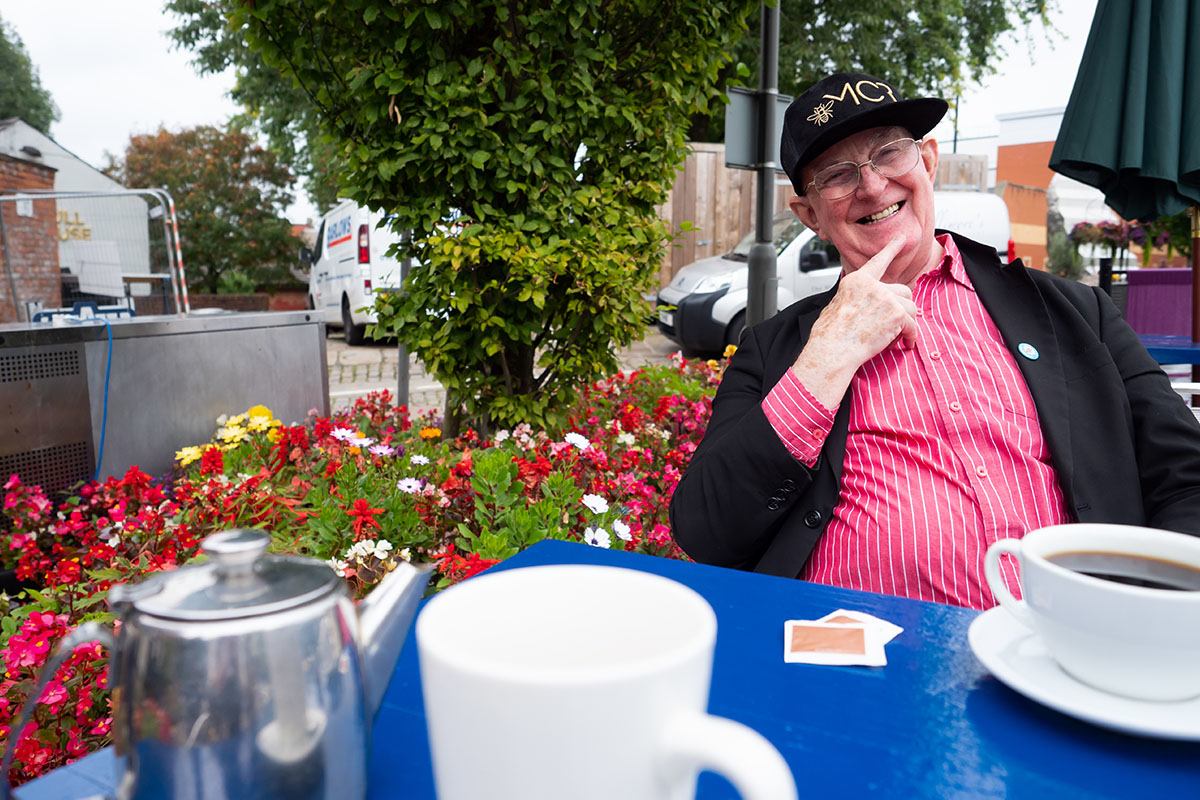
We've been busy over the past nearly twelve months working on oral history interviews. We’ve conducted nearly twenty interviews from the LGBT+ community so far. There’s been a range of age groups, we started off the project with people who are aged 70 and over, but now we’ve dropped down to people who are over 40. It’s all about collecting as many experiences as possible. I just finished an interview yesterday. They’ve all been absolutely fascinating and thoughtful stories.
My favourite part about helping with the LGBT archive is looking back on the timeline, seeing how we’ve built up more equality than we had. It’s not perfect now, but when you look back, we’ve made such huge strides. The archive is there to preserve that history for all time.
There have been many legislative changes, with civil partnerships, same-sex marriages, Section 28 being abolished, things like that. There’s also been more and more acceptance – to a certain extent it’s generational. The younger generations are overwhelmingly accepting. Although I don’t want to generalise that way, as there’s many people from older generations who are very welcoming. It’s gradually getting there.
